Methodist Archives and Research Centre (MARC)
Opening Times
- In-person appointments are available from Monday to Saturday between 10am and 5pm (extended opening hours on Thursdays, 10am to 7pm)
- Digital appointments are available from Monday to Friday at 11am, 2pm and 3pm.
Full information can be found via the dedicated pages on University of Manchester Library website.
Facilities
Toilet include disabled access toilets.
Parking
Parking available nearby
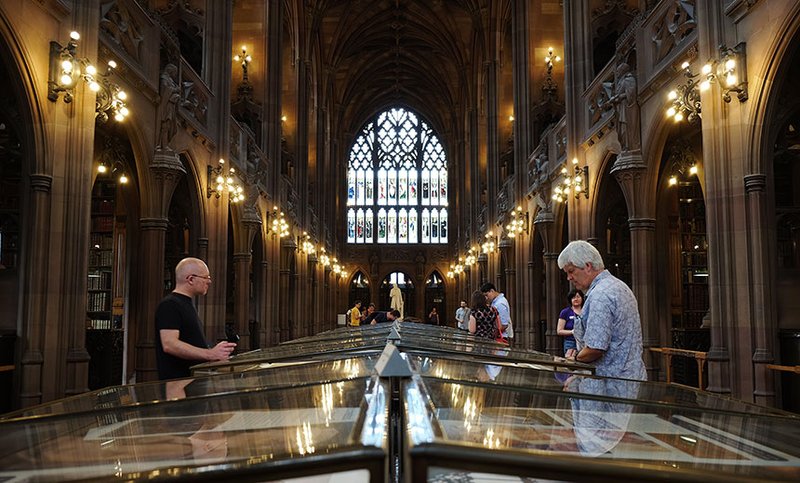
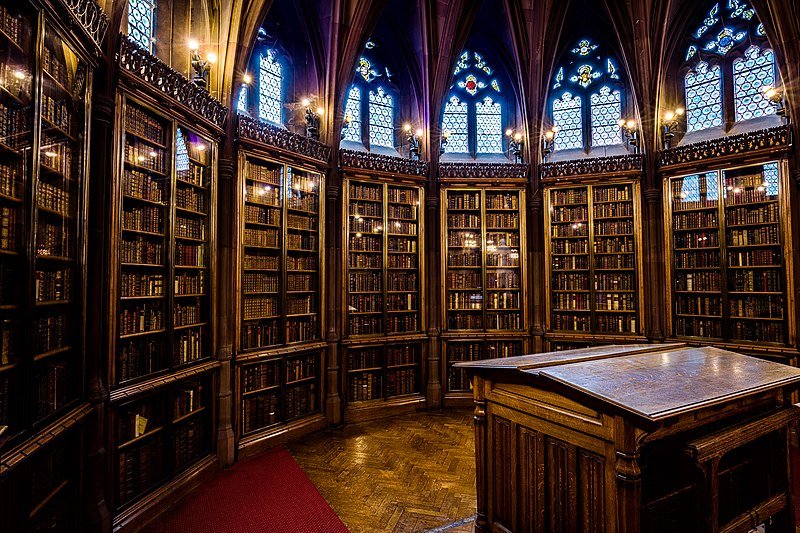
About
Methodist Archives and Research Centre (MARC)
The Methodist Archives and Research Centre (MARC), established by the Methodist Church of Great Britain, has been held on deposit at the Rylands since 1977.
Generally acknowledged to be one of the finest research resources in the world for the study of evangelical religion in its broad social, political and economic context, it incorporates print collections and important archive and manuscript material. The collections are of major significance for a wide range of disciplines, including social and cultural history, the history of emotions, gender studies, literary studies and linguistics, as well as the history of organised religion, spirituality and personal faith from the 18th century to the present day.
There is a regular exhibition programme.
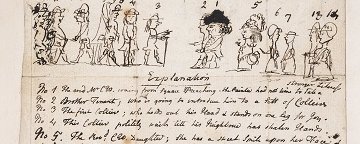
Autograph manuscript/sketch of a scene outside St James’ Church, Barton near Bristol, c.1775
This sketch depicting Charles Wesley being introduced to Methodist worshippers was executed by Charles’ teenage daughter Sally Wesley (1757-1828), who incorporated a self-portrait into the piece. The Wesley family was remarkably gifted across several generations in the fields of poetry, theology, music and art.
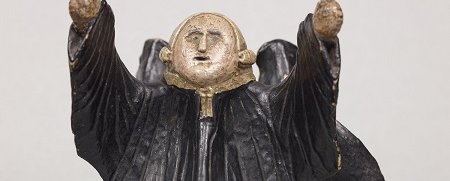
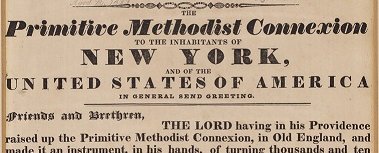
Primitive Methodist mission of William Knowles and Ruth Watkins
Framed printed circular published by the Primitive Methodist Connexion and addressed to the "inhabitants of New York and of the United States of America in general". The circular announces the despatch of a Primitive Methodist mission to the United States comprising Reverend William Knowles and Ruth Watkins. Published 8 June 1829.
Collection highlights
- Over 700 holograph letters written by John Wesley
- Charles Wesley hymnals (interleaved between the tracts are a number of manuscript hymns including 'Hark how all the welkin rings' ('Hark, the Herald Angels Sing')
- Notebook containing manuscript copy letters in the hand of Charles Wesley. Pages one to seven contain an account of a fire at Epworth Rectory in 1709. Pages eight to forty three contains accounts by members of the Wesley family of supernatural disturbances at Epworth Rectory from 1716 - 1717
- Piece of lace reputed to have been worked by Selina Hastings, Countess of Huntingdon, and given by her to Susanna Wesley
- Tortoiseshell needle case reputed to have been the property of Susanna Wesley
- A linen preaching band reputed to have been given by John Wesley to a young girl at City Road Chapel in London shortly before his death
- Embroidered pocket book presented by John Wesley to Miss Mary Trueman on her approaching marriage, 1788
- Two horsebone sculptures of John Wesley
- Manuscript book containing receipts and related financial notes relating to costs associated with the London Wesleyan society including maintenance of chapels, preachers' expenses and housekeeping costs. Chapels mentioned include City Road, Spitalfields and the Foundery. Handwriting includes specimens by John Wesley, Charles Wesley and several prominent preachers, 1777-90
- Miniature painting on ivory of Mary Bosanquet, wife of Rev John W Fletcher
- Journals of Hugh Bourne
- Prined circular published by the Primitive Methodist Connexion and addressed to the "inhabitants of New York and of the United States of America in general". The circular announces the despatch of a Primitive Methodist mission to the United States comprising Reverend William Knowles and Ruth Watkins - portrait engravings are included. Published 8 June 1829.
- James Smetham's Bible presented to him by his wife, Sept. 16 1869. With pen and ink illustrations throughout and a dedication to F.J. Shields
Recent research themes
- Reception of Charles Wesley's hymns
- Influence of Methodism on literacy, through schools, chapel libraries and other cultural influences
- Dissenting Women working in/writing about education
- Language used by eighteenth century Methodists
- Army and Navy chaplains in the First and Second World Wars
- Pacifism/Conscientious Objectors
- Autobiography and journals of Mary Fletcher
- National Children's Home (NCH)/Thomas Bowman Stephenson
- George Whitefield's New Testament in Greek
- Primitive Methodism
- Bible Christians
- Attitudes towards sexuality and gender in the twentieth century Methodist Church
- Same-sex marriage
- John Wesley's circular to Amercian Methodists
- Circuit Plans
- Frank O'Salisbury (painter)
- Nineteenth century preachers
Arranging a visit
Access to material in the Methodist collection is strictly by prior appointment. All materials in the collections must be requested and are consulted under supervised conditions. Readers are required to apply for a JRL ticket, and may require a letter of recommendation from the Methodist Church to access the rarest materials.
The Church’s collections of missionary materials are held by the School of Oriental and African Studies (SOAS), in London.
Anyone over the age of 18 can book appointments to access material by using the booking request form or via the email address : uml.special-collections@manchester.ac.uk
Limited spaces are available, and you must book a place in advance before coming to the reading room. Three day's notice are required to view most items, except for those requiring curatorial approval (this includes material that is subject to the Data Protection Act, the Church's own standing orders and/or is uncatalogued) or delivery from off-site which may take longer.
Hour long digital appointments are available where you can view some of the Special Collections via a Zoom call.
John Rylands Research Institute and Library
150 Deansgate, Manchester M3 3EH